Tokyo Tech News
Tokyo Tech News
Published: January 23, 2023
Tokyo Tech Bulletin is an email newsletter introducing Tokyo Tech's research, education, and students' activities. The latest edition, "Tokyo Tech Bulletin No. 68", has been published.
To get the most recent news directly to your inbox, subscribe to Tokyo Tech Bulletin outer now.

Tokyo Tech ushers in another year of exciting challenges, opportunities for personal and institutional growth, and rapid change in 2023.
As we reflect on the events of the previous calendar year, many occasions come to mind that brought the human touch back to the Institute's campuses. None of the achievements would have been possible without the resourcefulness, resilience, and passion to take on new challenges demonstrated by each member of the Tokyo Tech community.

The world of language, familiar yet profound. Humans and AI, their roles in language and communication, and what form our future world will take? Discussing these topics were Professor Naoaki Okazaki, who studies AIs for manipulating language, and Yasumasa Matsui, Tokyo Tech alumnus, former announcer, and reporter.
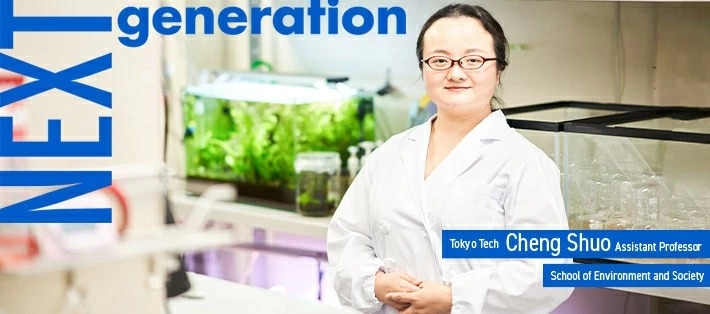
Microplastics adversely impact the environment and ecosystems, raising concerns on how they affect aquatic life. Assistant Professor Cheng Shuo (Department of Transdisciplinary Science and Engineering, School of Environment and Society) has created a simulated ecosystem called a "microcosmic system" to investigate how aquatic organisms are impacted by microplastics.
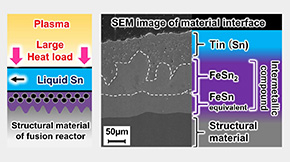
Researchers at Tokyo Tech and the National Institute for Fusion Science have clarified the chemical compatibility between high temperature liquid metal tin (Sn) and reduced activation ferritic martensitic, a candidate structural material for fusion reactors. This discovery has paved the way for the development of a liquid metal tin divertor, which is an advanced heat-removal component of fusion reactors.
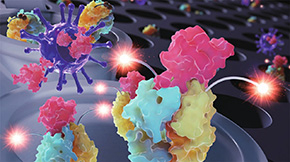
A new immunosensor based on Quenchbody technology shows great potential as a fast, inexpensive, and convenient tool to detect SARS-CoV-2. Developed by scientists at Tokyo Tech and Tokyo Medical and Dental University, this highly efficient diagnostic approach will be useful not only for point-of-care testing, but also for high-throughput epidemiological studies of COVID-19 and other emerging infectious diseases.
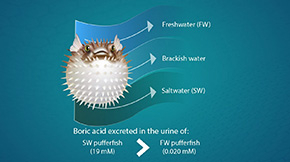
Seawater is known to contain a significant concentration of boric acid, which can be toxic and deadly to living systems. As such, fish living in marine habitats need to be able to excrete boric acid in order to maintain a healthy boron balance. Tokyo Tech researchers have now identified the gene and mechanism of boric acid transport in seawater fish and contrasted it to freshwater species.
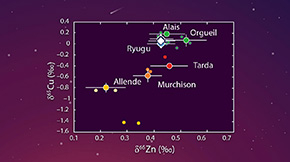
New samples collected by the Hayabusa2 space mission provide insight into the origins of moderately volatile elements such as zinc and copper. Tokyo Tech researchers have linked the material from the Cb-type asteroid, Ryugu, to the elemental composition of the Earth. Their results suggest that Ryugu-type material played a significant role in the genetic heritage of the Earth's elemental composition.
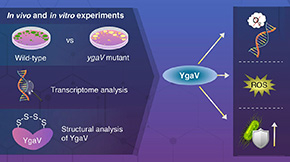
The YgaV protein found in the enteric bacterium Escherichia coli plays a critical role in maintaining homeostasis and antibiotic tolerance when exposed to sulfides, as shown in a recent study by Tokyo Tech researchers. Comparisons between normal and ygaV mutant bacterial strains shed light on the many effects of the YgaV transcription factor. This will lead to a better understanding of aerobic/anaerobic respiration switching and the link between antibiotic tolerance and free radicals.
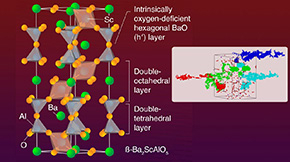
Proton conductors hold great promise in the field of clean energy. But, creating oxygen vacancies for high proton conduction is challenging. Tokyo Tech Researchers and Australian Nuclear Science and Technology Organisation (ANSTO) have recently found high proton conductivity without substitutions in a hexagonal perovskite-related oxide β-Ba2ScAlO5. The crystal structure of β-Ba2ScAlO5 provids a strategy for developing superior proton conductors.